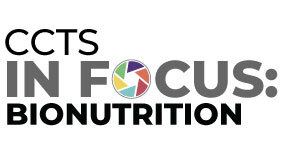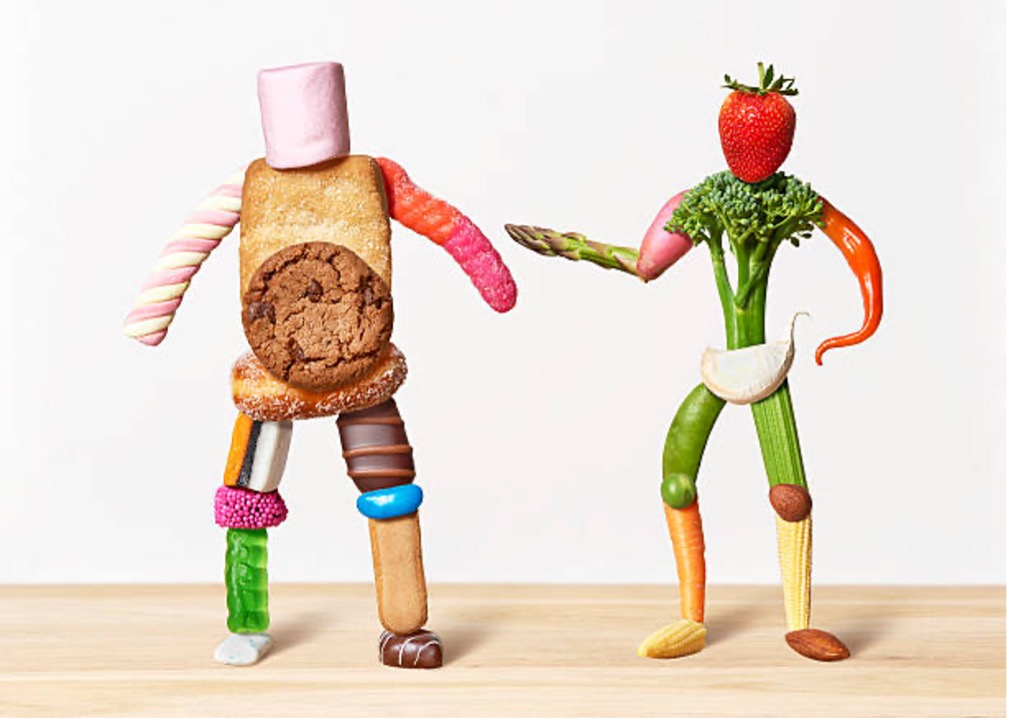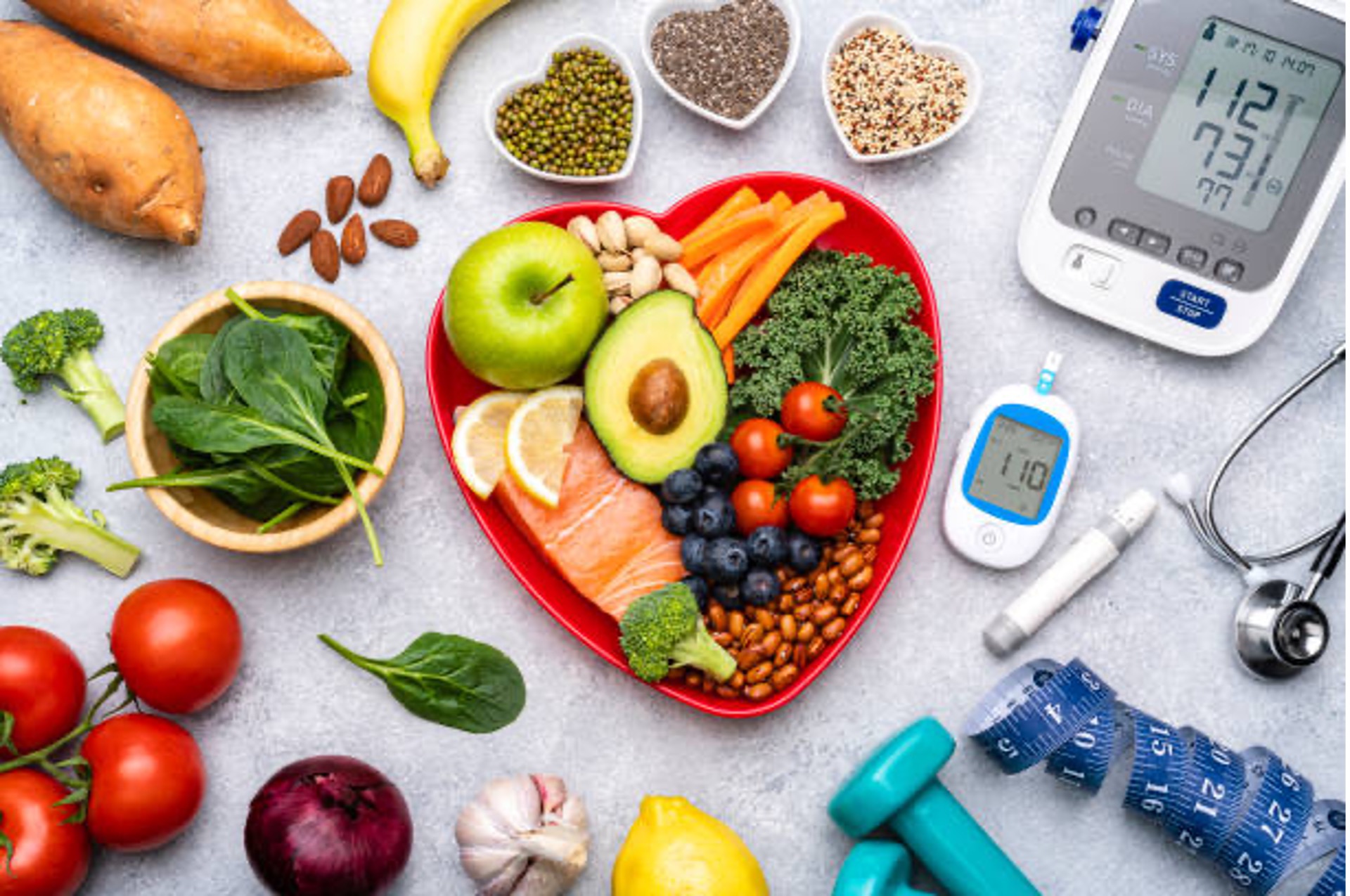Written by Ciara Mitchell, PhD, RDN, LD – February 7, 2025
 February is National Heart Health Awareness Month, an important time to reflect on how we can keep our hearts healthy. One of the biggest factors that affect our heart health is diet, particularly the food we eat every day. In the United States, many people consume ultra-processed foods (UPFs), which are foods that have undergone significant processing and contain added sugars, unhealthy fats, and artificial ingredients. These foods are often linked to heart disease, diabetes, and obesity. This article will explain what UPFs are, how they can affect your heart, and provide tips to make healthier food choices. The CCTS Bionutrition unit is committed to promoting health and wellness by examining the current literature on UPFs and providing ways to apply the science to everyday living.
February is National Heart Health Awareness Month, an important time to reflect on how we can keep our hearts healthy. One of the biggest factors that affect our heart health is diet, particularly the food we eat every day. In the United States, many people consume ultra-processed foods (UPFs), which are foods that have undergone significant processing and contain added sugars, unhealthy fats, and artificial ingredients. These foods are often linked to heart disease, diabetes, and obesity. This article will explain what UPFs are, how they can affect your heart, and provide tips to make healthier food choices. The CCTS Bionutrition unit is committed to promoting health and wellness by examining the current literature on UPFs and providing ways to apply the science to everyday living.
What Are Ultra-processed Foods?
 Food processing refers to the steps taken to prepare food from its natural state before it reaches our plates. The Nova food classification system, created by researchers in Brazil, divides food into four groups based on how much processing they undergo.
Food processing refers to the steps taken to prepare food from its natural state before it reaches our plates. The Nova food classification system, created by researchers in Brazil, divides food into four groups based on how much processing they undergo.- Group 1 includes unprocessed or minimally processed foods. These foods are closest to their natural form and might just be cleaned, cut, or frozen. Examples include fresh fruits and vegetables, whole grains, and frozen meat.
- Group 2 involves processed culinary ingredients like oils, sugar, salt, and butter. These are used to prepare food but are not typically eaten alone.
- Group 3 includes processed foods that have added ingredients such as salt, sugar, or oils to improve flavor or preserve them. Examples are canned beans or salted nuts.
- Group 4 are ultra-processed foods (UPFs), which are industrially made and often contain low-cost ingredients like oils, sugars, and artificial additives. These foods are usually high in fats, sugar, and sodium. Examples include chips, sugary drinks, packaged snacks, and ready-to-eat meals.
The Link Between Ultra-processed Foods and Heart Disease
Heart disease is the leading cause of death in the United States. High blood pressure (HBP) is a major risk factor for heart disease, and nearly half of American adults suffer from it. Studies have shown a clear link between the consumption of UPFs and an increased risk of heart disease.In one study in France, researchers followed participants for five years and found that those who ate more UPFs had a higher risk of developing cardiovascular disease. Another study in the U.S. examined the concept of "heart age," which compares the health of your heart to your actual age. The study found that people who ate more UPFs had a higher "heart age" than their actual age. This suggests that eating too many UPFs can make your heart "older" and more prone to disease.
How Ultra-processed Foods Affect Heart Health
 UPFs are far from their natural state and often contain unhealthy fats, sugar, and sodium. These ingredients are what make UPFs tastier, but they can lead to overeating. Excessive intake of sugar, salt, and unhealthy fats increases the risk of heart disease by contributing to conditions like obesity, high blood pressure, and diabetes. Studies also show that UPFs may affect your hunger cues and gut health, which can lead to overeating and poor digestion.
UPFs are far from their natural state and often contain unhealthy fats, sugar, and sodium. These ingredients are what make UPFs tastier, but they can lead to overeating. Excessive intake of sugar, salt, and unhealthy fats increases the risk of heart disease by contributing to conditions like obesity, high blood pressure, and diabetes. Studies also show that UPFs may affect your hunger cues and gut health, which can lead to overeating and poor digestion.When you eat a lot of UPFs, your body gets more than it needs in terms of calories, fats, and sugars. This makes it harder for your heart to stay healthy. By cutting back on UPFs, you can help lower your risk of heart disease and improve your overall health.
Strategies for Reducing UPF Consumption
Cutting back on UPFs might sound difficult, but there are simple ways to make healthier food choices. Here are some tips to reduce UPF intake: Make Better Swaps: Choose fresh fruits and vegetables over packaged snacks. For example, instead of grabbing chips or candy, try snacking on a piece of fruit, a handful of nuts, or some yogurt. These options are nutrient-dense and better for your heart.
Make Better Swaps: Choose fresh fruits and vegetables over packaged snacks. For example, instead of grabbing chips or candy, try snacking on a piece of fruit, a handful of nuts, or some yogurt. These options are nutrient-dense and better for your heart.- Read Food Labels: Pay attention to food labels when you shop. If a product has more than five ingredients, and you don’t recognize most of them, it’s likely an ultra-processed food. Look for items with fewer ingredients, ideally, ones you can pronounce and recognize. A rule of thumb to consider is the “5 ingredients or less is best”!
- Limit Fast Food: Fast food is often loaded with unhealthy fats, sugars, and sodium. Cooking at home may seem intimidating, but it’s actually a great way to control what goes into your meals. You can use minimally processed culinary ingredients to make tasty, heart-healthy dishes without the additives found in fast food.
- Cook at Home: If you want to improve your heart health, try cooking more meals at home. You don’t have to be a professional chef to make healthy meals. Choose simple, whole ingredients like fresh vegetables, lean meats, and whole grains.
To learn more about how to prepare healthier, tasty, minimally-processed foods, check out our video “This or That-Vinaigrette”
Conclusion
While it may not be realistic to completely eliminate UPFs from your diet, reducing the amount you consume can have a significant impact on your health. Simple swaps, reading food labels, and cooking at home can help you eat more heart-healthy foods. By making these small changes, you can improve your cardiovascular health and lower your risk of heart disease. To learn more about reading food labels or finding heart healthy recipes, check out helpful resources from these trusted health organizations. Small steps can lead to big changes for your heart!References
- American Heart Month Communications Toolkit | Heart Disease | CDC
- The American Heart Association Diet and Lifestyle Recommendations | American Heart Association
- Juul F, Vaidean G, Parekh N. Ultra-processed Foods and Cardiovascular Diseases: Potential Mechanisms of Action. Adv Nutr. 2021;12(5):1673-1680. doi:10.1093/advances/nmab049
- Yang Q, Zhang Z, Steele EM, Moore LV, Jackson SL. Ultra-Processed Foods and Excess Heart Age Among U.S. Adults. Am J Prev Med. 2020;59(5):e197-e206. doi:10.1016/j.amepre.2020.06.013
- Chen X, Zhang Z, Yang H, et al. Consumption of ultra-processed foods and health outcomes: a systematic review of epidemiological studies. Nutr J. 2020;19(1):86. Published 2020 Aug 20. doi:10.1186/s12937-020-00604-1
- Juul F, Vaidean G, Parekh N. Ultra-processed Foods and Cardiovascular Diseases: Potential Mechanisms of Action. Adv Nutr. 2021;12(5):1673-1680. doi:10.1093/advances/nmab049